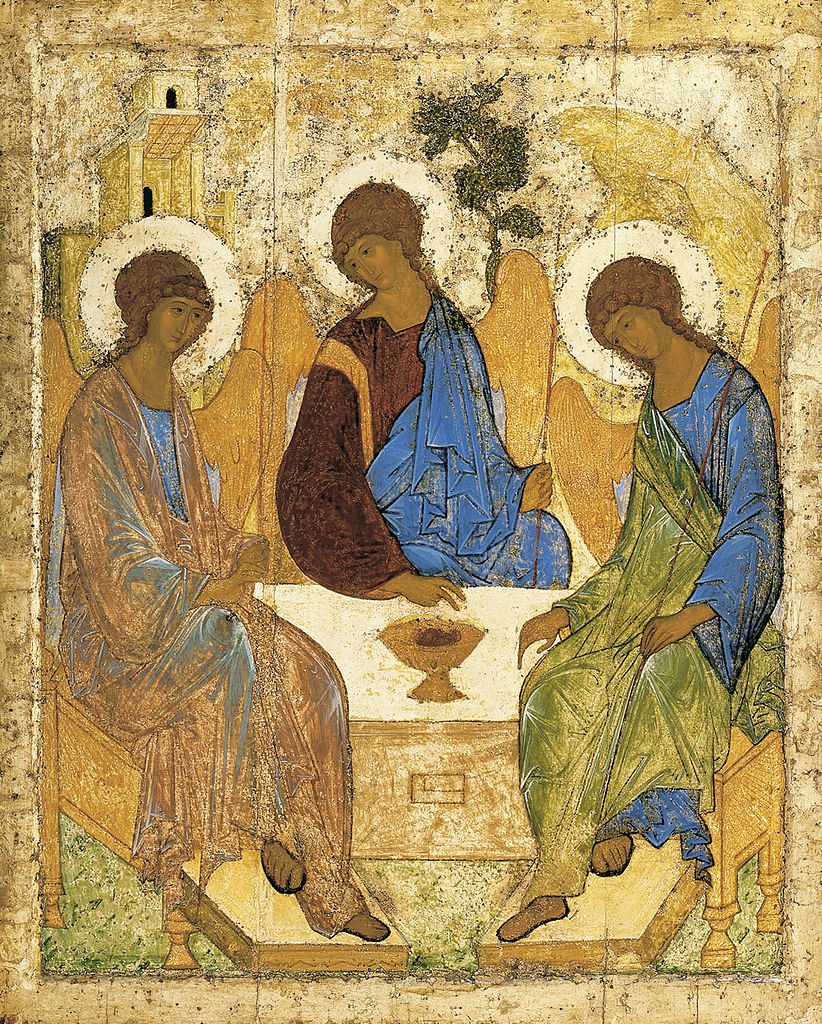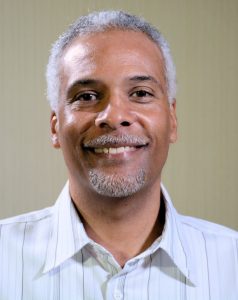Dear Brothers and Sisters,

Matthew, Mark, Luke and John, all inspired by the Holy Spirit, began their Gospels in different ways. Mark, likely the first to write, started with John the Baptist’s ministry and Jesus’ baptism. Matthew, perhaps referring to Mark’s Gospel, began with Jesus’ genealogy, going back to Abraham and God’s promises (Genesis 12). Luke, perhaps with Mark’s and Matthew’s accounts in hand, began with John the Baptist’s birth (chapter one), then Jesus’ birth (chapter two), then in chapter three with Jesus’ baptism along with a genealogy of Jesus reaching back to Adam (Genesis 1 and 2). John, who wrote last, began his account before creation.
In John’s Gospel we learn a great deal about the nature of Jesus and of God. In John 1:1, the apostle tells about the Word (the pre-incarnate Son of God) who both was with God (pointing to God’s personal distinctions) and was God (pointing to God’s unity). Then in John 14, he records what Jesus said that pointed to the Holy Spirit’s divinity. John thus shares what Paul refers to as “the deep things of God” (1 Corinthians 2:10 ASV).

(public domain via Wikimedia Commons)
By inspiring each Gospel writer to give a distinctive version of Jesus’ story, the Holy Spirit painted a masterful portrait of both who Jesus is, and who God is as Father, Son and Spirit. It took time for this understanding to come into focus in the minds and hearts of the disciples, just as Jesus had indicated: “The Advocate, the Holy Spirit, whom the Father will send in my name, will teach you all things and will remind you of everything I have said to you” (John 14:26).
In addition to the unfolding of this portrait of the Trinity in John, note what we find in the other Gospels:
- Matthew records Jesus’ instructions to baptize “into the name of the Father, and of the Son and of the Holy Spirit” (Matthew 28:19 ASV). Notice that Jesus himself proclaims that God’s one “name” (name here is singular), which is “Father…Son…and Holy Spirit.” We should not miss the fact that Jesus has instructed us to baptize people into the three-personed-one-name of God (the Holy Trinity!).
- Mark notes the Trinity in his account of Jesus’ baptism: “At that time Jesus came from Nazareth in Galilee and was baptized by John in the Jordan. Just as Jesus was coming up out of the water, he saw heaven being torn open and the Spirit descending on him like a dove. And a voice came from heaven: ‘You are my Son, whom I love; with you I am well pleased'” (Mark 1:9-11).
- Luke gives a tri-personal account of Jesus’ baptism, and also of the angel’s announcement to Mary that she will give birth to the Son of God: “‘Do not be afraid, Mary, for you have found favor with God. And behold, you will conceive in your womb and bear a son, and you shall call his name Jesus. He will be great and will be called the Son of the Most High. And the Lord God will give to him the throne of his father David, and he will reign over the house of Jacob forever, and of his kingdom there will be no end.’ And Mary said to the angel, ‘How will this be, since I am a virgin?’ And the angel answered her, ‘The Holy Spirit will come upon you, and the power of the Most High will overshadow you; therefore the child to be born will be called holy—the Son of God.'” (Luke 1:30-35 ESV). Notice the mention of God, the Son of God, and the Holy Spirit—one God, three divine persons.
Let’s quickly address a particularly ignorant argument that, sadly, holds some people spellbound against the doctrine of the Trinity. That argument holds that if the Spirit caused Mary to conceive Jesus, then Jesus would be the son of the Holy Spirit rather than the son of the Father. Their reasoning is erroneous in at least three ways: First, it ignores that God is one. Second, it assumes the Spirit is separate from God. Third, it assumes that the Spirit operates the same way a human person does. Early theologians viewed this faulty reasoning as idolatrous—thinking of God as if he is a creature and acts like a creature. To avoid that error, they came up with a way to appropriately distinguish the Spirit’s action from that of a human male. Mary, they said, conceived Jesus by the Spirit not through sexual relations, but through hearing the Spirit’s announcement. Through speaking to her at just the right time and place through the agency of an angel, Mary was enabled to hear and then receive the Word of God, who was thus implanted in her. What happened to Mary was echoed in what James wrote in his epistle concerning the implanting of the word of God in those who, like Mary, respond in faithful obedience to God’s call on their lives (James 1:18 ESV; James 1:21 ESV).
Rather than teaching that there are three separate Gods, the doctrine of the Trinity teaches that the Father, Son and Holy Spirit are three distinctions of the one God. The notion that there are three separate Gods is tritheism, not the Trinity. We always begin with the truth of the oneness of God. Father, Son and Spirit are not three separate beings who negotiate plans to act together. God does everything in unity of purpose arising out of unity of being. The Gospel writers then tell us that Jesus was begotten of the Father (John 1:14 ASV; John 1:18 ASV; John 3:16 ASV) and conceived by the Holy Spirit (Matthew 1:18; Luke 1:35). From the beginning, the purpose of the triune God was that the Word (the Son of God), incarnate in Jesus, would come to reveal God to us.
The apostle Paul continues this theme in his epistles, showing that the fullness of the Godhead dwelt in Jesusm who is fully human and fully God. Further, Paul teaches that the Holy Spirit is in us and does things for us: “…The Spirit helps us in our weakness. We do not know what we ought to pray for, but the Spirit himself intercedes for us through wordless groans. And he who searches our hearts knows the mind of the Spirit, because the Spirit intercedes for God’s people in accordance with the will of God” (Romans 8:26-27). Though we don’t know how to pray very well, and often are at a complete loss for words, the Spirit acts on our behalf—searching our thoughts and emotions when we pray, expressing them to the Father far better than we can. This is not something a mere power without personhood can do—it’s what God does on our behalf to build the relationship between us and God. Paul continues: “Who then is the one who condemns? No one. Christ Jesus who died—more than that, who was raised to life—is at the right hand of God and is also interceding for us” (Romans 8:34). His point is that God is for us. Just as the Father interceded by sending the Son, and the Son interceded through his life, death and resurrection, the Holy Spirit continues that intercession through our daily prayers. The whole God makes intercessions for us out of their oneness as the three-personed God.
The Bible reveals God’s transcendence as well as the immanence of his triune nature. God doesn’t need an answering machine. Within his very being, double intercession is being made for us through Jesus and the Holy Spirit who intercede for us as we pray. Thus God knows and hears our every thought. As Thomas F. Torrance liked to say, God is not a mute God—he is an eloquent God who speaks, and does so personally. Our God is a communicative God who speaks to us, and to whom we may speak in prayer.
I love the way the apostle Peter sums it all up:
[God’s] divine power has given us everything we need for a godly life through our knowledge of him who called us by his own glory and goodness. Through these he has given us his very great and precious promises, so that through them you may participate in the divine nature, having escaped the corruption in the world caused by evil desires. (2 Peter 1:3-4)
In and through God—Father, Son and Holy Spirit—we participate now in the divine life, looking forward to glory when we will share that life in all its fullness in a time when there is no more pain or sorrow.
Loving that God includes us in his love and life,
Joseph Tkach















